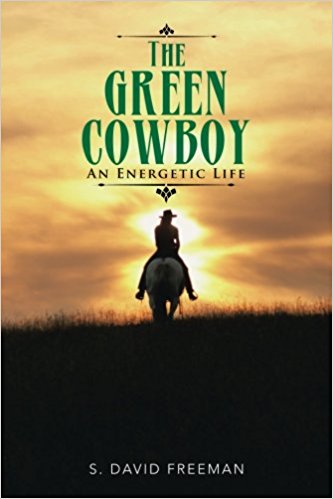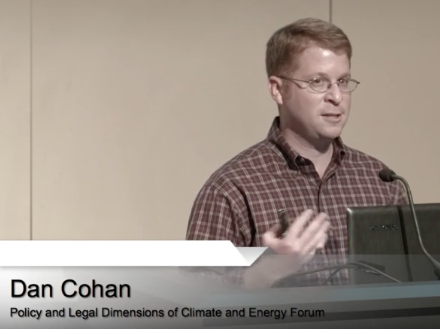

Innovative Rice Air, Climate, and Energy Education found here
Tandem Talks on Unleashing Our Home and Country from Fossil Fuels can be found here. Additional expert talks can be found here. Student talks can be found here.
I had the great pleasure of being asked to give a tandem-talk with Assistant Professor Daniel Cohan at the Rice Policy and Legal Dimensions of Climate Energy Forum. The forum, held on February 9th and 10th, 2016, was the first of a series of forums led and developed by Professor Cohan. The forums and Dr. Cohan’s classes are designed to investigate our changing climate and energy infrastructure as well as the the associated political, environmental, humanitarian, business and legal forces and implications. The forum included expert talks and student led talks and virtual poster presentations.
Our tandem talks explored how to unleash a home and the country from fossil fuels. We have also co-authored an article at The Hill which describes our vision of how an “Energy Miracle” is not needed because the technology is already available today and cheap enough that we expect continued and faster deployment. Additional information on the authors can be found below:
- “How I am Unleashing My Home and Car from Fossil Fuels” – Dr. Daniel Cohan, Associate Professor of Civil & Environmental Engineering, Rice University (https://www.linkedin.com/in/daniel-cohan-02333560)
- “How to Unleash Our Country from Fossil Fuels” – Leah Parks, Author of All-Electric America (http://allelectricamerica.com/bioleah/); Associate Editor, Electricity Policy
Also presenting were: David Schoenbrod, Trustee Professor of Law, New York Law School; Jim Blackburn, Blackburn & Carter and Rice University; Jed Anderson, AL Law Group and Adjunct Professor, University of Houston Law School. Dr. Daniel Cohan also presented again.
“Swapping Air Quality Standards for a Carbon Tax: An Efficient, Alternate Energy Route to Cleaner, Cooler Air” – Dr. Daniel Cohan, Associate Professor of Civil & Environmental Engineering, Rice University (https://www.linkedin.com/in/daniel-cohan-02333560)

“To Ditch Air Quality Standards Requires Legal Engineering” – David Schoenbrod, Trustee Professor of Law, New York Law School (http://www.nyls.edu/faculty/faculty-profiles/faculty_profiles/david_schoenbrod/); Visiting Scholar, American Enterprise Institute (https://www.aei.org/scholar/david-schoenbrod/)

“Climate and Clean Air from a Public Interest Perspective” – Jim Blackburn, Blackburn & Carter (http://www.blackburncarter.com/BC/blackburn.html) and Rice University (http://ceve.rice.edu/Content.aspx?id=99)
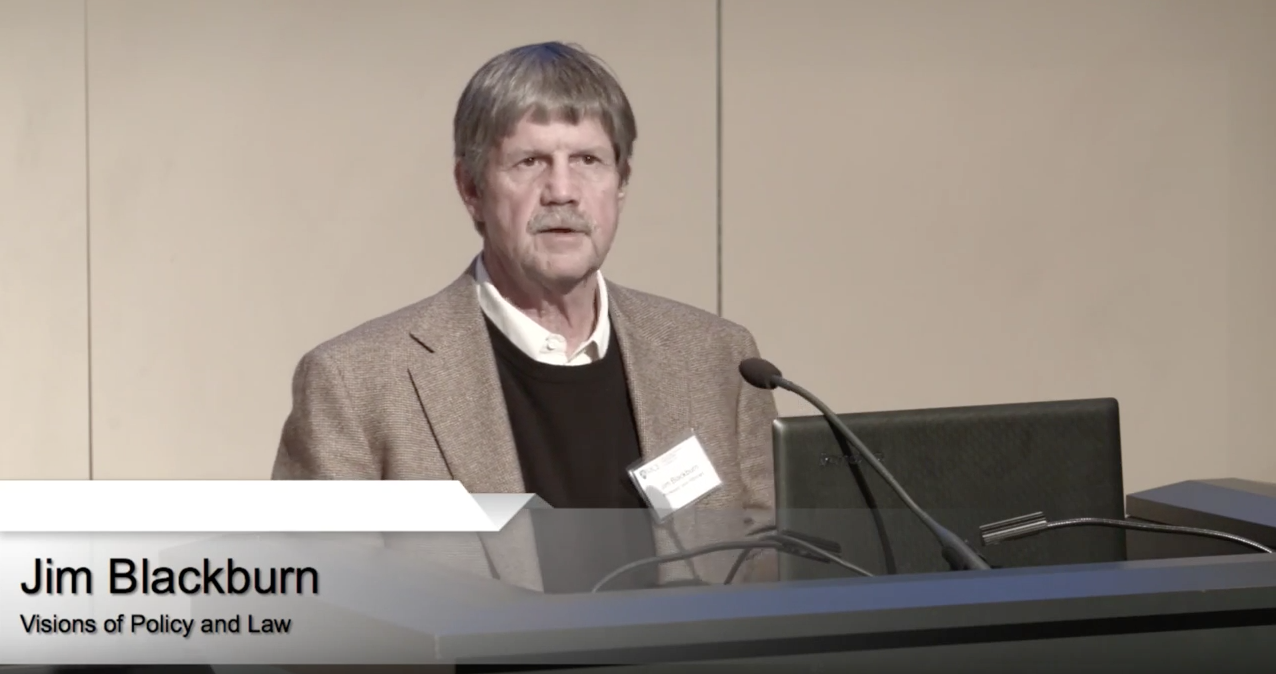
“A New 21st Century Clean Air and Climate Change Act” – Jed Anderson, AL Law Group (http://www.allawgp.com/attorneys/jed-anderson/); Adjunct Professor, University of Houston Law School
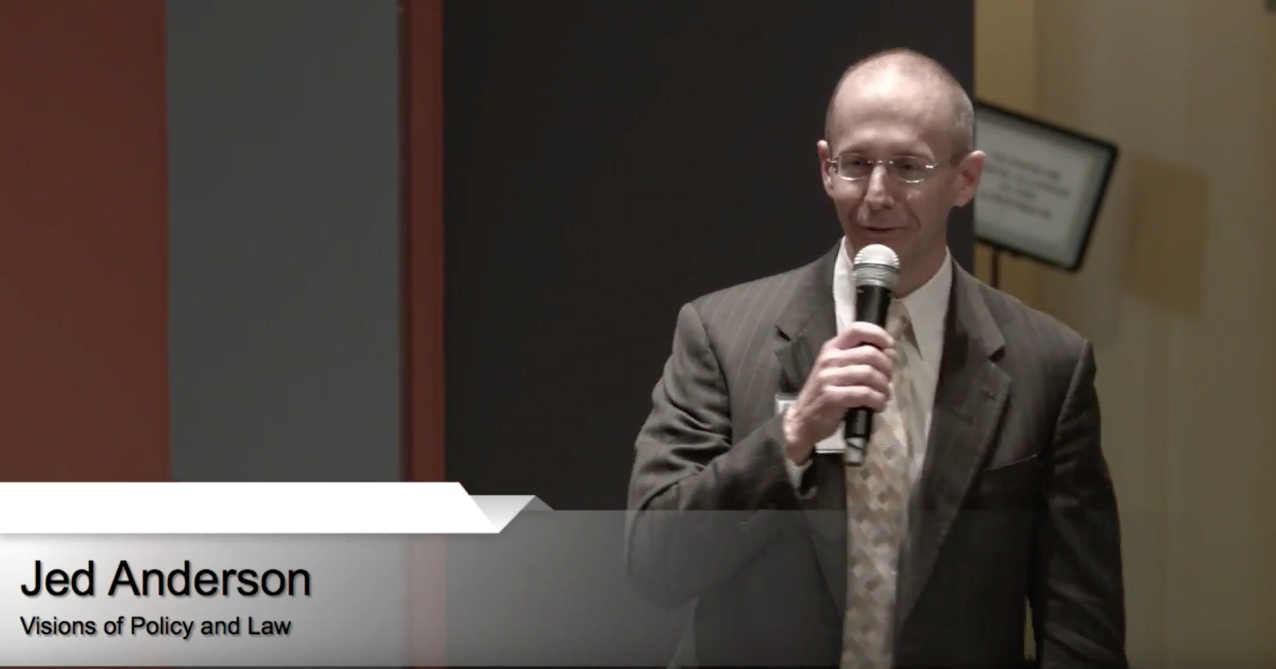
The expert presentations were both dynamic and informative from individuals with extensive experience and in-depth knowledge. The speakers explored the Carbon Tax, Air Quality Standards, and a proposed Clean Air and Climate Change Act. They looked in-depth at the problems with these standards and acts and the legal dimensions and needed resolutions for restructuring acts, laws and policy. They explored the barriers to reform as well as possibilities for resolution and solutions. They all demonstrated that to make change and have a lasting impact, it is likely to takes years of perseverance, dedication and hard work. This is an important lesson for any student and professional alike. Indeed, it is hard work, often sacrifice, and passion to make something better that ultimately gives results.
It was also exciting to meet with Cohan’s students and learn about what interests and excites our future leaders of tomorrow. I had the opportunity to view their talks and virtual poster presentations. I learned about “over-fishing, “the Flint Water Crisis,” “Climate Change Impacts on Oceans,” and more. Quazi Ziaur Rasool gave a thoughtful presentation on Biochar usage in agriculture and brought forward the important reminder that to solve our greenhouse gas budget problem we will also need to consider not only our energy practices, but our agricultural practices as well. Amanda San Miguel presented on the carbon tax and provided insight into the benefits and drawbacks of different carbon tax designs and of involving the fossil fuel industry in carbon tax policy decisions. Click below for the student talks:
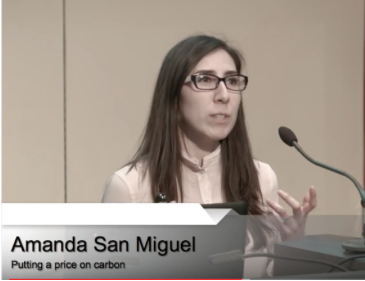
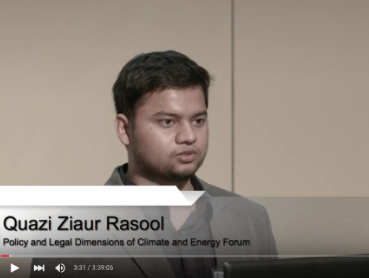
Cohan has restructured his class, presenting a new teaching philosophy which explores innovative ways of investigating scientific queries. He has created a fluid class environment where there is bidirectional learning between the students, teachers, mentors and experts he brings into his forums. Cohan has developed labs where the students conduct research in teams of learning modules. The teams conduct research to present to the class at the Forums to each other and to people around the world. The forums are broadcast via social media and YouTube to the entire world. They can be watched “live” and are archived for viewing afterwards. Ultimately, the presentations are designed to facilitate a dynamic learning environment where the students have the opportunity to be both a teacher and a student. He also has a unit that involves business plans and will utilize experts in the industry to help them develop business plans for or changing energy infrastructure.
He has also gathered mentors to work with his students, including professionals, professors, PhD candidates and Postdocs. Mentors for the class can be found here.
Termed “Why Not Pedagogy”, his teaching philosophy aims “to challenge the traditional notion of education to make everyone a learner. Dr. Cohan, an atmospheric scientist himself, challenges his students to become teachers of “atmospheric science, climate change and the relationship between climate and energy.” He also challenges his students to develop innovative business plans that are actually applicable to real world endeavors and embrace changing world we live in today. In this way he fosters innovative, critical and interdisciplinary thinking that will create the innovative scientific, policy and business leaders of tomorrow.
The next Forum will be in April and involve the human and business dimensions of the climate and our current energy transformation. It is sure to be another dynamic learning experience for speakers, observers, teachers and students alike.
~Leah






